Behind the News
Behind the News: All the backstory to our major news this week
Published
11 months agoon

Over the past one week, there were lots of important stories from around the African continent and we served you some of the most topical ones.
Here is a rundown of the backstory to some of the biggest news in Africa that we covered during the week:
1. Senegalese main opposition leader, Ousmane Sonko bags two-year jail term
On June 1, the West African country of Senegal was thrown into turmoil following the sentencing of main opposition leader, Ousmane Sonko, to two years in jail after he was found guilty by a Dakar court of “corrupting young people”.
The simultaneous violence that broke out in several cities led to the killing of 10 people as Sonko’s supporters took to the streets and destroyed properties which led to clashes with security forces.
Before his sentencing, Sonko had earlier been arrested in 2021 on allegations of raping a shop keeper, in what opposition figures say was a politically motivated strategy by the President Macky Sall administration to prevent him from running in the presidential election slated for next year.
Sonko was earlier in the year found guilty of libel and given a suspended two-month sentence. The sentence was later extended to six months on appeal.
He has also been accused of organising illegal demonstrations where his teeming supporters who are mainly youths, have gone on to destroy government properties while some people have been killed in clashes with security agencies.
The 48-year-old who finished third in the last presidential elections and is seen as the only candidate who can give Sall a serious fight in the upcoming presidential election should he find a way to run again, has had several run-ins with the government.
2. Bola Tinubu sworn in as Nigeria’s 16th president
On May 29, Nigeria witnessed another smooth transition from one democratically elected president to another when
Asiwaju Bola Ahmed Tinubu was sworn in as the country’s 16th President.
Tinubu, who was the candidate of the ruling All Progressives Congress, APC, took over from President Muhammadu Buhari who led the West African country from 2015 when he defeated then President Goodluck Jonathan.
Tinubu, a former Governor of Lagos State, was declared the winner of Nigeria’s presidential elections held on February 25, defeating the candidates of the Peoples Democratic Party, PDP, and the Labour Party, LP, Atiku Abubakar and Peter Obi, respectively.
The swearing-in ceremony of Tinubu was attended by notable African leaders like South Africam President, Cyril Ramaphosa, Gabonese Prime Minister, Billy By-Nze, President of the Republic of Cote D’Ivoire, Alassane Ouattara, Ghana President, Nana Akufo-Addo, and President Paul Kagame of Rwanda.
Tinubu, a former Governor of Nigeria’s commercial capital, Lagos State, and major power broker in Nigeria, is grappling widespread acceptance over the election’s credibility. The major opposition parties are challenging his victory at the court.
3. Power rotation suspended ‘until further notice’ in South Africa
The South African electricity firm, Eskom, announced on June 3rd that it was suspending the controversial power rotation it embarked upon “until further notice”.
The power rotation in one of Africa’s most industrialized economies came about due to incessant power outages that threatened households, businesses and the general economy of the country.
“Load shedding was suspended today at 11:40 am (09:40 GMT) and until further notice, thanks to improved generation capacity and lower demand,” Eskom spokeswoman, Daphne Mokwena told a press conference.
The epileptic power situation in the country had in February forced President Cyril Ramaphosa to declare a state of emergency in the sector, sacking the Minister of Electricity and appointing a new one all in a bid to arrest the crisis.
4. Egyptian Ministry made official complaint against Netflix for ‘Queen Cleopatra’ documentary
On May 30, we reported that the Egyptian Ministry of Culture filed an official complaint to the country’s Public Prosecutor against Netflix, a global streaming platform, over controversial documentary, “Queen Cleopatra” which depicted the legendary queen as a black woman.
The release of the documentary prompted a backlash of criticism in the North African country, with the authorities claiming the film had distorted its history.
In the complaint filed by the legal advisor of the Minister of Culture, Essam Refaat Khalaf, the ministry cited several violations by Netflix including disobeying a court order against releasing the film.
Political and academic authorities in Egypt have insisted that Queen Cleopatra was ‘light-skinned’ and not a ‘black’ as portrayed by the film which the Egyptian authorities claim it “promotes Afrocentric thinking by distorting and erasing the Egyptian identity.”
5. Eswatini MPs jailed for challenging King Mswati’s autocratic rule
On June 2, we brought you a report of two Eswatini pro-democracy members of parliament who were convicted and jailed on charges of terrorism and murder for daring to challenge the autocratic rule of King Mswati III.
The two MPs, Mduduzi Bacede Mabuza and Mthandeni Dube, were arrested in 2021 after the raised objections to King Mswati interference in the political space of the former Swaziland and participated in violent pro-democracy protests which left dozens of people dead.
King Mwatii who ascended the throne in 1986 and has ruled over Africa’s “last absolute monarchy” with strong arm tactics, has come under severe criticism in recent years after he banned political parties from taking part in elections which are held in a way that no one seriously challenges his power.
The two MPs had called for a reform of the complex system of elections in which political parties, although theoretically authorised, are not allowed to participate.
You may like
-


IMF says South Africa needs to do more to cut spending, lower debt-to-GDP ratio
-
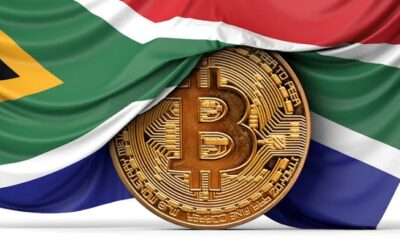

South Africa’s crypto firm VALR gets licence to operate as asset service provider
-
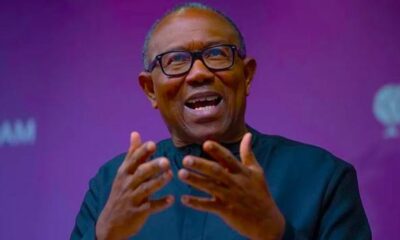

Behind the News: All the backstories to our major news this week
-
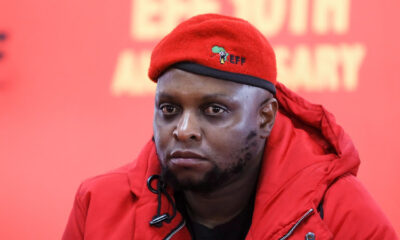

Video: South African opposition leader wants accountability within parliament
-
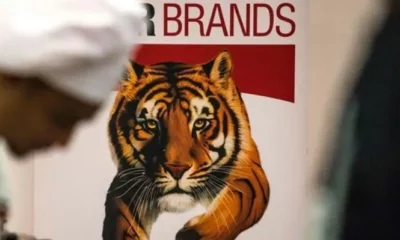

South Africa’s Tiger Brands says its new plant to help cut costs, lower prices
-


SA’s asset management firm Rohatyn Group sells beverage firm to Indian company
Behind the News
Behind the News: All the backstories to our major news this week
Published
4 days agoon
April 14, 2024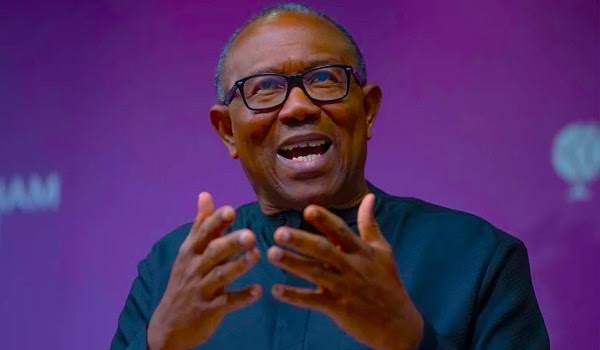
Over the past week, there were lots of important stories from around the African continent, and we served you some of the most topical ones.
Here is a rundown of the backstories to some of the biggest news in Africa that we covered during the week:
1. Nigeria, so rich, yet so poor: The sad tale of Africa’s sleeping giant
A few years ago, Nigeria was regarded as the giant of Africa in terms of the wealth deposits in the country and the potentials of becoming one of the richest countries in the world.
Apart from its vast human and capital resources, statistics have also revealed that Nigeria has well over 300 mineral resources deposited in every part of the country that could make the most populous black nation in the world one that others will look up to.
Many Nigerians have, over the years lamented the plundering of the Nigerian economy by successive administrations and thieving politicians who loot the country’s wealth and leave the nation in a very dire situation.
The latest to add his voice to the situation is the presidential candidate of the Labour Party (LP) in Nigeria’s 2013 general elections, Peter Obi, who, during the week, lamented the dwindling economy, hardship and poverty that Nigerians have been made to wallow in, especially since the coming of President Bola Tinubu on May 29, 2023.
The current administration has inadvertently plunged the nation into unbearable economic crisis with a majority of the masses finding it difficult to make ends meet.
Obi who expressed his disappointment at what the country is going through, emphasized that Nigeria
has no reason to be poor due to rich natural resources Nigeria is blessed with in every part of the country.
Obi made the assertion during a courtesy visit to the Emir of Zazzau, Ambassador Nuhu Bamali, at his palace in Kaduna State, northern Nigeria, bemoaned what he described as a waste of the vast arable lands in the country, especially in the North.
“Nigeria has nothing to do with poverty if those of us who are political leaders including my humble self had decided to serve the country faithfully,” the former Anambra State governor said while addressing the gathering.
“God created us with a lot of resources, and if those resources are properly put in place, we will pull most poor people out of poverty.
“The way things are in our country today requires that all of us must get involved in one way or the other.
“Because if we do, Nigeria will not have anything to do with poverty. I will always say this anytime I have the opportunity because Nigeria is one of the countries in the world that is blessed with everything that is required.
“The current socioeconomic instability in the country requires that all citizens and leaders come together and see how the situation could be salvaged,” he stressed.
2. ‘Never again!’ as Rwanda commemorates genocide’s 30th anniversary
Sunday, April 7, was a day of sober reflection for the eastern African nation of Rwanda as it marked the 30th years the devastating genocide that claimed more than 800,000 people, largely from the Tutsi ethnic group and moderate Hutus, in what has been described as one of the bloodiest massacres of the 20th century.
The killing spree in the tiny country lasted 100 days from April to July 1994 before the Rwandan Patriotic Front (RPF) rebel militia led by incumbent President Paul Kagame took the capital Kigali.
The genocide victims were shot, beaten or hacked to death in killings fuelled by vicious anti-Tutsi propaganda broadcast on TV and radio, with at least 250,000 women raped and sexually assaulted, according to UN figures.
But before then, the country had witnessed one of the worst cases of intra-nation violence which was was triggered by the assassination of Hutu President Juvenal Habyarimana on the night of April 6, when his plane was shot down over Kigali, which triggered the rampage by the Hutu extremists led military and the Interahamwe militia made up largely of Hutus.
However, the 30th anniversary of the genocide which was celebrated with solemn tributes to the victims, also saw a collective resolve that never again will the country experience such a devastating episode.
Since coming into power, Kagame has done everything to keep the country together and take away the memory of the genocide and aid its healing process.
Part of the measures instituted by the Kagame administration include no mention of ethnic groups on Rwandan ID cards, while secondary school students learn about the genocide as part of a tightly controlled curriculum.
Today, Rwanda had found its footing and has become one of the fastest developing countries in Africa with the western world falling over itself to do business with the country.
Since the end of the genocide and the assumption of office by Kagame, the president has pulled a tight string and every year, he keeps emphasising that there would never be a repeat of the sad incident that took the country to the brink.
3. One week, one trouble for Hichilema as alliance in popularity challenge
The outgone week saw another testament of Zambian President Hakainde Hichilema’s one week, one trouble after the coalition, the United Kwacha Alliance (UKA), challenged to test his popularity by conducting early presidential elections.
The coalition threw the challenge to Hichilema after the police declined its request to organise a public rally citing security concerns.
In a response, the alliance which believed they were denied what is constitutionally their fundamental rights, said if Hichilema thought he was popular with the masses, he should test such popularity by calling for an early election.
Reacting to the denial, the coalition, in a statement by its Chairman, Sakwiba Sikota, said it was not surprised at the response of the Zambian Police force which is controlled by the ruling UPND.
The alliance however, said it would not relent in its task of liberating the Zambian people from this repressive UPND regime.
The UKA also accused President Hichilema and the UPND of violating the rights of Zambians who don’t support their ineffective and short-lived government.
This new faceoff is one among a series of attacks and accusation levelled at Hichilema by opposition figures over his running of the government.
The Zambian President has come in for severe criticism with his style of leadership which is typical of the kind of politics being played by most African leaders who, more often than not, tend to change once they get into office.
Hichilema on his part, has not acted differently as he has also shown that his government is not different from what is obtained in most African nations.
while assuring that the UPND government could not stop the people’s movement.
4. Nigeria’s northern elders group pass vote of no confidence on President Tinubu
The current situation in Nigeria where the masses are reeling in unbearable hardship and poverty and a result of the policies of President Bola Tinubu, has forced a group of elders from the Northern region to pass a vote of no confidence in him.
The group of eminent political leaders and leaders of thought under the aegies of the Northern Elders Forum during the week, said it regretted campaigning for Tinubu and getting the people of the region to vote for him in the 2023 presidential election.
The Elders Forum, in a statement, said they deeply regret voting for Tinubu and vowed not to repeat mistake in 2027 which is the next general election cycle.
The eminent group of elders, in the statement issued by its spokesman, Abdul-Azeez Suleiman, said it is disappointment with the Tinubu administration, and would prioritize unity and consensus in selecting a candidate for the highest office in the land.
“The North made a mistake in voting Bola Tinubu to the presidency in 2023, and it is unlikely that they will repeat the same error in the future,” the Forum said.
“The North have learned from their past misstep and will strive to select a candidate who can unite the country and govern in the best interests of all Nigerians.
“Moving forward, the North will be more cautious in selecting a candidate for the presidency. They will prioritize someone who is seen as more inclusive, less controversial, and more aligned with the interests of all regions of the country.
“The mistake of supporting Tinubu in 2023 has taught them the importance of unity and consensus in selecting a candidate for the highest office in the land,” Suleiman reiterated.
The import of the threat by the Northern eldets is another clear sign of the disenchantment ordinary Nigerians have felt for President Tinubu despite his constant assurances that all his policies are meant to revamp the country’s economy and make life better for the people.
A vote of no confidence coming from elders of a region that accounts for the highest number of votes in Nigeria would definitely spell doom for the President in the next election and only a change of fortunes in the lives of the people can buck a change.
5. 10 years of schoolgirls’ abduction: Still no end in sight
Ten years ago, when the dreaded Boko Haram insurgents struck the Government Girls’ Secondary School in Chibok in Borno State and abducted 276 female students all in their early teens, many Nigerians did not believe that till now many of the girls will still be in captivity.
The government of then President Goodluck Jonathan promised to rescue the girls but a year later when it left power, they could not rescue all the girls.
Then came the regime of President Muhammadu Buhari and another round of promises rented the air. With his background as an accomplished Army General, it was a given that in no time, the girls would be rescued and reunited with their families.
But 10 years have gone by and about 89 of the victims are still missing. Many of them have been rescued, some have managed to escape while reports indicate that many of them have been married off to the terrorists and have become mothers.
And as Nigeria marks the 10th year commemoration of the abduction of the schoolgirls, there is no end in sight yet for the release of about 89 of the girls still remaining in captivity.
On this 10th year commemoration of their being in captivity, Nigerians are looking forward to the day the remaining girls, especially the poster girl of the abductees, Leah Sharibu, will be free and join up with their families and loved ones.
Behind the News
Behind the News: All the backstories to our major news this week
Published
2 weeks agoon
April 7, 2024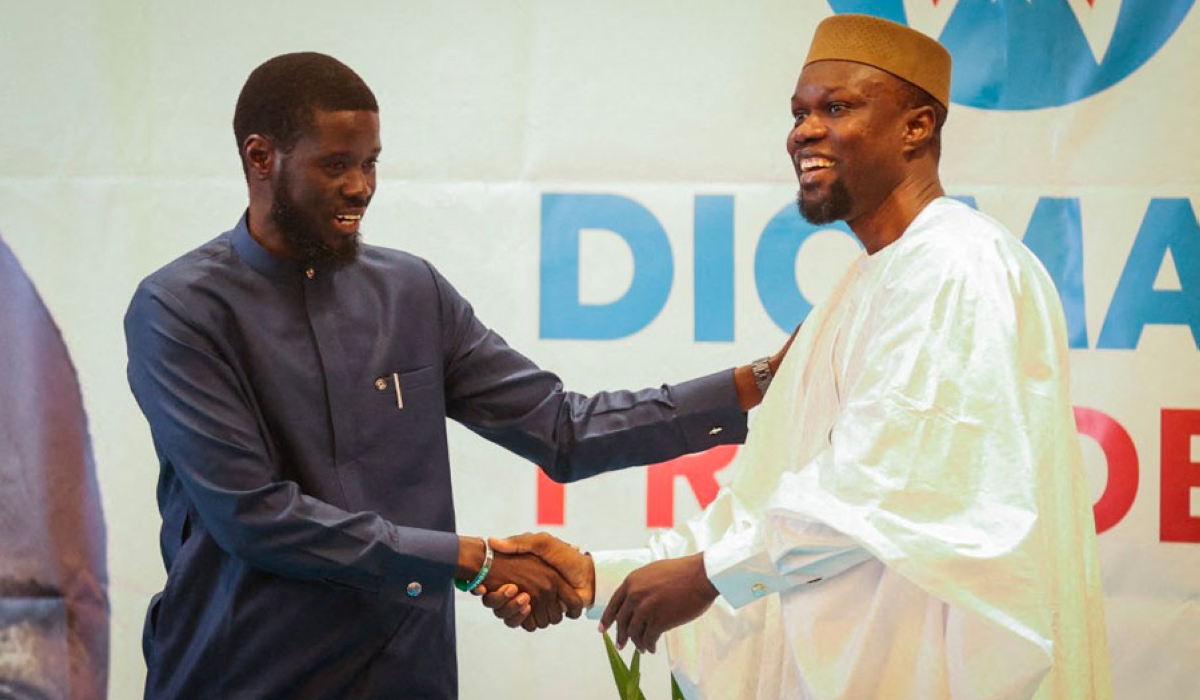
Over the past week, there were many important stories from around the African continent, and we served you some of the most topical ones. Here is a rundown of the backstories of some of the biggest news stories in Africa that we covered during the week:
Here comes Senegal’s govt of young people
Following months in the build-up of the Senegalese election which produced Bassirou Diomaye as President and the appointment of Ousmane Sonko as Prime Minister, an announcement of a new government was made on Saturday, the make-up suggests a groundbreaking political alliance in Senegal’s political space as Sonko stressed that the government was “ruptured.” It has 25 ministers and five secretaries of state, and almost half of them are from his political party, the African Patriots of Senegal for Work, Ethics, and Fraternity (PASTEF).
“This is a government that embodies the project [of Bassirou Diomaye Faye], a systemic transformation the Senegalese people voted for on March 24, 2024, through a first-round election with 54.28% of the vote,” Sonko said of the president-elect.
Cheikh Diba was appointed as finance minister, which is a big deal as he used to be in charge of budget programming at the finance office. Abdourahmane Sarr was made minister of the economy. Birame Souleye Diop will be in charge of the oil and energy ministry for a country that will start producing oil and gas in 2024. Souleye Diop was vice president of Sonko and Faye’s Pastef party, which has since broken up. Two generals were chosen to be ministers of defence and interior. Ousmane Diagne is now the justice minister. He used to be a public lawyer at the Dakar Court of Appeal.
Sonko had hinted that the government is likely to embrace anti-France campaigns which have spread across former French colonies in the sub-region, as he hinted it would consider the implementation of the reform of the West Africa region’s CFA franc currency at a regional level first, and if that failed, would consider creating a national currency, if his preferred candidate, Bassirou Diomaye Faye, wins the next presidential election.
Beyond the political alliance that ushered in the new government and disposition in the international system, the jury is out on the likely performance of the government of “young people” which spreads an argument about age inclusiveness in political leadership across the continent with Faye being the youngest elected president in the continent.
For many years, economic reports have criticized African countries for having too many people. People often see this growth as putting a strain on all of their developing skills. More than 60% of people living in Africa today are younger than 25 years old. By 2030, 42% of the world’s young people are likely to be from Africa.
Nigeria in fresh living cost crisis as electricity cost blows up
The Nigerian government changed the price of natural gas for companies that make electricity to $2.42 per metric million British thermal units (MMBtu) on Monday, which was the first news of the week. The old rate was $2.18mmbtu, so this is more than that. The following day, on Wednesday, the Nigerian Electricity Regulatory Commission allowed a rise in the price of electricity for customers in Band A. Customers will pay N225 per hour for electricity instead of N66 now.
More than 70% of Nigeria’s electricity is produced by gas-fired thermal power facilities. As a result, when the Nigerian Electricity Regulatory Commission conducts another tariff review, the increased cost of the item can increase the rate that power users must pay.
There has been a surge in the cost of living since May 29 when the subsidies on petroleum products were removed, and the price of diesel which is the common option for alternate energy hit a record high of 1N,900, the new tariff could further compound situation for Nigerians but strong points have been made against continued subsidy regime in the energy sector.
Since late 2023, the terrible state of the energy supply has gotten worse because gas suppliers to gas-fired thermal power plants have stopped sending gas to the plants because the plants owe $1.3 billion in debt. In Nigeria, the price of electricity for homes in September 2023 was about 23 naira per kilowatt hour, which is about 0.016 U.S. dollars. But the price of electricity for factories was about 36 NGN per kilowatt hour, which is about 0.026 United States dollars.
Nigeria, which has the biggest economy and people in Africa, has had problems with electricity outages for a long time. The country doesn’t have enough power plants, and some of the energy that is made is wasted because the grid is so badly broken. Electricity companies can’t charge rates that reflect their costs, and they have a hard time collecting money because their meters aren’t set up correctly, which discourages new investment.
Egypt’s al-Sisi begins third term
Egyptian President Abdel Fattah al-Sisi was sworn in for a third term on Tuesday in the country’s new capital, which is being built outside of Cairo. After being in charge for more than ten years, Sisi “will take the oath of office on the constitution Tuesday in the new parliament premises in the administrative capital,” which is east of Cairo, according to Al-Ahram.
Sisi, who is 69 years old began the new term as expectations build for wide-ranging changes after a $50 billion international bailout warded off the country’s worst economic crisis in decades. more than three months after he won re-election with 89.6% of the vote over three mostly unknown candidates. After huge protests across the country, Sisi led the removal of former Islamist president Mohamed Morsi. He was previously in charge of the army and the Ministry of Defence.
The possibility of a government reshuffle as Cairo tries to deal with the effects of two years of terrible economic problems and a severe lack of foreign currency. Analysts say that at the start of 2024, the Arab world’s most populous country was heading straight for failure and economic collapse. Then, suddenly, it got more than $50 billion in loans and investments. Financial services companies have also raised Egypt’s credit ratings, as months-worth of blocked inventory began to be released into the import-dependent economy.
In just a few weeks, the United Arab Emirates revealed a $35-billion deal to develop land in Ras al-Hikma, Egypt. At the same time, the International Monetary Fund more than doubled a $3-billion loan, and the World Bank and the European Union signed new loans. Former deputy prime minister Ziad Bahaa-Eldin said that the huge bailout kept Egypt “from falling into the abyss.”
Egypt remains in the eye of the world, particularly the Israel and Hamas war as the boundary between Egypt and Israel stretches 206 kilometres (128 miles) along the eastern edge of the Sinai Peninsula from the de facto tripoint with Palestine (Gaza) to the Gulf of Aqaba in the Red Sea makes Egypt a geopolitical interest for the Western powers.
Somaliland’s naval space conflict in new twist
Ethiopia’s proposal to construct a naval station in the breakaway territory of Somaliland, Somalia took a fresh dimension on Thursday as Somalia announced the recall of its ambassador to Addis Ababa, closing two Ethiopian consulates, and expelling Ethiopia’s ambassador. “This follows … the actions of the Federal Democratic Republic of Ethiopia which infringe upon Somalia’s sovereignty and internal affairs,” Somalia’s foreign ministry said in a statement.
Disagreement over a memorandum of understanding that landlocked Ethiopia signed on January 1st, agreeing to lease 20 km (12 miles) of coastline in Somaliland, a region of Somalia that has enjoyed effective autonomy since 1991 and asserts its independence. In exchange for Ethiopia’s recognition as an independent state, Somaliland, the breakaway territory of Somalia, can use a major port with access to the Red Sea thanks to a controversial pact.
The contentious deal allows Somaliland to grant Ethiopia the use of a major port with access to the Red Sea in exchange for recognition as an independent state. Somalia has described the pact as an act of “aggression” and a violation of its sovereignty. Somaliland is requesting a 50-year lease from Ethiopia to lease 20 kilometres (12 miles) of the coastline in exchange for Ethiopia’s access to a military installation and commercial marine services.
International law does not recognize Somaliland’s claim of independence from Somalia in 1991. Its most recent deal with the big country in the region, Ethiopia, has been strongly opposed by the central government in Mogadishu, which has promised to fight it in every way possible. The agreement has made things more tense in the Horn of Africa. The US, the EU, the African Union, and the Arab League have all called for calm and for Somalia’s rights to be respected with the president of Egypt, Abdel Fattah al-Sisi, declaring that his country would not tolerate any threat against Somalia, following Ethiopia’s announcement that it would take into consideration Somaliland’s claim to independence in exchange for access to a seaport.
EDITOR’S PICK


Top European, Asian clubs on alert as Super Eagles keeper set to make contract decision
Some top clubs in Europe and Asia have been put on alert as Super Eagles and Chippa United goalkeeper, Stanley...


IMF says South Africa needs to do more to cut spending, lower debt-to-GDP ratio
A top official from the International Monetary Fund has revealed that South Africa needs to do more to cut spending...
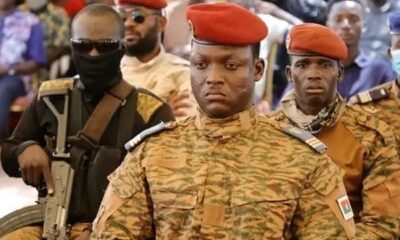

Burkina Faso expels 3 French diplomats over ‘subversive activities’
According to a letter quoted by Reuters on Thursday, three French diplomats have been sent back to France by Burkina...


Nigeria’s MAX partners Ghana’s Kofa in e-bike financing deal
Nigeria’s electric vehicle solutions provider, MAX, has announced striking a partnership deal with Ghana’s innovator in energy networks, Kofa, that...


Zambia asks EU to help strengthen its democratic initiatives ahead of 2026 elections
The Zambian government has called on the European Union (EU) to help in strengthening democratic initiatives in the country as...


Nigeria destined to become major global economy under Tinubu— VP Shettima
Nigeria’s Vice President, Kashim Shettima, has predicted that the country is destined to become a major economic force in the...


Nigeria’s central bank insists depleting external reserves not due to Naira defence
According to the Central Bank of Nigeria (CBN), the big drop in the country’s foreign exchange reserves was not due...


African Guarantee Fund partners Nordic Development Fund to launch green finance in Nigeria
The African Guarantee Fund (AGF) has teamed up with the Nordic Development Fund (NDF) to launch a green finance fund...
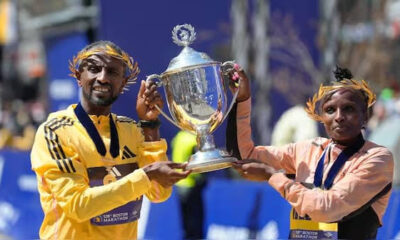

Ethiopia’s Lemma, Kenya’s Obiri give Africa double podium finish at Boston Marathon
Ethiopia’s long distance runner, Sisay Lemma, and Kenyan female marathon sensation, Hellen Obiri, teamed up to give Africa a double...


Davido’s ‘Unavailable’ achieves milestone with 100 million views on YouTube, Spotify
Nigeria’s Afrobeats sensation, David Adeleke, popularly known as Davido, has landed another milestone after his hit single, “Unavailable’, surpassed 100...
Trending
-

 Sports1 day ago
Sports1 day agoEthiopia’s Lemma, Kenya’s Obiri give Africa double podium finish at Boston Marathon
-

 Metro1 day ago
Metro1 day agoZambia: Many feared injured as UPND, PF supporters clash in court
-

 Culture1 day ago
Culture1 day agoDavido’s ‘Unavailable’ achieves milestone with 100 million views on YouTube, Spotify
-
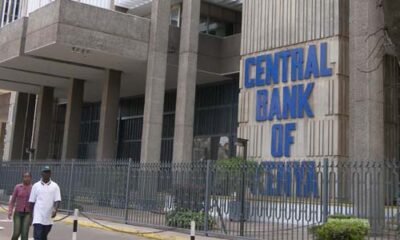
 VenturesNow1 day ago
VenturesNow1 day agoInvestors’ wealth drops by $968 million on Nairobi Securities Exchange


